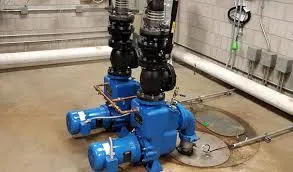English
- Afrikaans
- Albanian
- Amharic
- Arabic
- Armenian
- Azerbaijani
- Basque
- Belarusian
- Bengali
- Bosnian
- Bulgarian
- Catalan
- Cebuano
- Corsican
- Croatian
- Czech
- Danish
- Dutch
- English
- Esperanto
- Estonian
- Finnish
- French
- Frisian
- Galician
- Georgian
- German
- Greek
- Gujarati
- Haitian Creole
- hausa
- hawaiian
- Hebrew
- Hindi
- Miao
- Hungarian
- Icelandic
- igbo
- Indonesian
- irish
- Italian
- Japanese
- Javanese
- Kannada
- kazakh
- Khmer
- Rwandese
- Korean
- Kurdish
- Kyrgyz
- Lao
- Latin
- Latvian
- Lithuanian
- Luxembourgish
- Macedonian
- Malgashi
- Malay
- Malayalam
- Maltese
- Maori
- Marathi
- Mongolian
- Myanmar
- Nepali
- Norwegian
- Norwegian
- Occitan
- Pashto
- Persian
- Polish
- Portuguese
- Punjabi
- Romanian
- Russian
- Samoan
- Scottish Gaelic
- Serbian
- Sesotho
- Shona
- Sindhi
- Sinhala
- Slovak
- Slovenian
- Somali
- Spanish
- Sundanese
- Swahili
- Swedish
- Tagalog
- Tajik
- Tamil
- Tatar
- Telugu
- Thai
- Turkish
- Turkmen
- Ukrainian
- Urdu
- Uighur
- Uzbek
- Vietnamese
- Welsh
- Bantu
- Yiddish
- Yoruba
- Zulu
Telephone: +86 13120555503
Email: frank@cypump.com
Nov . 26, 2024 01:29 Back to list
Submersible Pumps for Industrial Applications and Efficient Fluid Management Solutions
Industrial Submersible Pumps An Overview
Submersible pumps have become an essential component in various industries, ranging from wastewater management to heavy manufacturing. Designed to operate underwater, these pumps are specifically engineered to handle liquids, including corrosive and abrasive materials. As technology continues to evolve, industrial submersible pumps are gaining popularity due to their efficiency, reliability, and versatility.
Definition and Design
An industrial submersible pump is a device that is submerged in the liquid it is meant to pump. Unlike traditional pumps that draw fluid toward them, submersible pumps work by pushing liquid to the surface. They typically consist of a hermetically sealed motor and a pump body. The motor is sealed to prevent any moisture from entering, which enhances durability and extends operational life.
The design of submersible pumps allows them to operate at various depths, making them ideal for applications such as deep well pumping, sewage treatment, and mining operations. These pumps are often made of materials resistant to corrosion and erosion, such as stainless steel, to withstand harsh working environments and extend their lifespan.
Applications
Industrial submersible pumps find applications in several sectors, including
1. Wastewater Management In municipal and industrial wastewater treatment facilities, submersible pumps are used to move wastewater from collection systems to treatment plants. Their ability to handle solids and sludge makes them particularly effective in managing effluent.
2. Water Supply Submersible pumps are commonly utilized in well water extraction, irrigation systems, and potable water supply. They can extract water from deep underground sources, making them indispensable in regions reliant on aquifers.
3. Mining In mining operations, submersible pumps are essential for dewatering tunnels and pits. They effectively remove excess water that can hinder the mining processes, thus maintaining safe working conditions and efficient operations.
4. Flood Control During severe weather events, submersible pumps are critical in managing floodwaters. They can quickly evacuate water from flooded areas, protecting property and lives.
industrial submersible pump

Advantages of Submersible Pumps
The advantages of using industrial submersible pumps are numerous
- Efficiency Because submersible pumps are located at the source of the fluid, they require less energy to operate. Their design minimizes hydraulic losses, making them highly efficient.
- Space-Saving Design Submersible pumps are compact and can be installed at the bottom of a tank or well, saving above-ground space for other equipment.
- Versatility These pumps can handle a wide range of fluids, including clean water, sewage, slurry, and hazardous materials. This versatility makes them suitable for several applications across different industries.
- Reduced Noise Levels As submersible pumps are submerged, they operate more quietly than surface-mounted pumps, creating a less disruptive work environment.
- Low Maintenance With fewer mechanical components exposed to the elements, submersible pumps typically require less maintenance, leading to lower operational costs.
Challenges and Considerations
Despite their many benefits, there are challenges associated with submersible pumps. These include potential overheating of the motor if not properly submerged and the risk of clogging when handling fluids with high solid content. Proper selection, installation, and regular maintenance are critical to mitigate these issues and ensure optimal performance.
Conclusion
Industrial submersible pumps represent a vital technology in multiple sectors, ensuring efficient fluid movement under challenging conditions. Their design, reliability, and versatility make them indispensable tools in applications ranging from wastewater management to flood control. As industries continue to seek solutions that promote sustainability and efficiency, the role of submersible pumps is set to grow, enhancing productivity and helping to manage resources more effectively. Ultimately, investing in high-quality submersible pumps is an investment in the future of industrial operations.
-
ISG Series Vertical Pipeline Pump - Chi Yuan Pumps Co., LTD.|Advanced Hydraulic Design&Energy-Efficient Solutions
NewsJul.30,2025
-
ISG Series Vertical Pipeline Pump - Chi Yuan Pumps Co., LTD.
NewsJul.30,2025
-
ISG Series Vertical Pipeline Pump - Chi Yuan Pumps Co., LTD.|energy-efficient fluid handling&industrial durability
NewsJul.30,2025
-
ISG Series Vertical Pipeline Pump - Chi Yuan Pumps | Advanced Engineering&Industrial Efficiency
NewsJul.30,2025
-
ISG Series Pipeline Pump - Chi Yuan Pumps | High Efficiency, Energy Saving
NewsJul.30,2025
-
ISG Series Vertical Pipeline Pump-Chi Yuan Pumps|High Efficiency&Reliable Performance
NewsJul.29,2025










